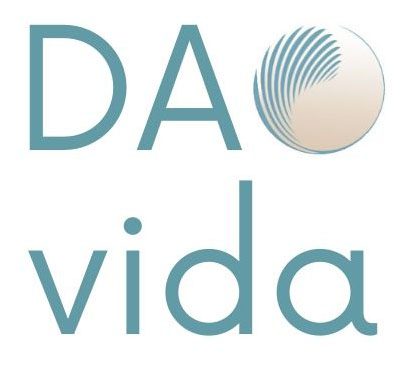Image by Pete Linforth from Pixabay
The suggestions here are written with the intention of using easy to obtain ingredients and resources.
Nose and Throat
We are all washing our hands and avoiding touching our face with unwashed hands, to avoid giving the virus easy access to the mucosal tissue of the nasopharynx. We also need to ensure that our nose and throat (way in for the virus) are not a welcoming environment. One obvious step is wearing a mask but can we do more to protect ourselves?

It is best to avoid routine nasal rinse as it could rinse away the mucous that protect the membranes (that mucous also contains anti-bodies) but you could use a steam (head under a towel over a bowl of hot water with a drop of eucalyptus essential oil) as it will be harmless to the mucous membranes and will create an unhospitable environment to the virus which is heat sensitive.
Throat gargles with warm water (after adding a pich of salt and 1 drop of tea tree essential oil) would also have an antiviral effect.
Because both the steam or throat gargle would allow the essential oil to get inside your body it is crucial to make sure you use good quality essential oil. You can get away with cheaper, less good quality ones in a spray to sanitize surfaces or in an oil burner but in this instance make sure you get a good oil. An oil that has a strong camphor or menthol like smell is likely to not be pure, no matter what the label says. It was likely chemically extracted and has traces of those extracting chemicals. It is easiest to tell with an oil like peppermint (and to a lesser degree lemon).
If you are using essential oils in a spray to sanitize your hands or counters, then you can buy the larger bottles of cheaper brands, but for your nose or thorat, get the better quality oils.
How to make a surface sanitising spray with essential oils: use 60 drops (2 tsp) of essential oils per 1/2 cup to 1 cup of water. I suggest making smaller amounts rather than larger ones to avoid oils evaporating and the spray losing its effectiveness.
Diet
Foods to minimize, or eliminate are sugar, wheat based products and most dairy products (except yoghurt and kefir).
The most important thing you can do is to let go of sugar and wheat as they increase the inflammatory response and weaken the immune system. If you have been stocking up on pasta, this may not be the best time to eat it! It is better to “stock up” on pulses (lentils, beans, chickpeas), grains like rice, quinoa or barlay, frozen vegetables and berries.
Wheat is a common allergen, though many people are not aware of it as its effect can be relatively small and not manifest in very noticeable symptoms. Both wheat and dairy can contribute to what we call accumulation of Damp in the body, which may manifest as accumulation of mucous, phlegm, fatty tissues and those things are best avoided at this times. Avoiding these foods will help keep your nasal passages, your sinuses, and your lungs clean and at more optimal condition.
Exceptions are yoghurt and kefir, which offer immune enhancing qualities through their probiotic action. Note that we are talking about plain, unadulterated yoghurt or kefir not the flavoured ones.
Grains that enhance immune system function are oats and barley. If you need another grain, for variety use millet would be the best option.
Corn is a grain, and is added to a plethora of products under a processed form (corn starch, corn dextrose, corn glucose among others), so mucj so that it too has become a hidden allergen for many people. It is wise to limit or eliminate corn in order to reduce inflammatory response and make the immune system more efficient.
Fresh (or frozen to limit your trips out to the shop) fruits and vegetables are your best friends in times of stress and depletion.
Dark leafy greens help with circulation and mood and are anti-inflammatory. See the green slime soup recipe to get your dosage of daily greens. you can also try stir frying greens (kale, spinach, collards, beet greens, etc.) with some coconut oil, a table spoon of pitted olives, a tablespoon of sunflower seeds, and 2 tablespoons of frozen blueberries. Stir fry for 3-5 minutes, until the greens are mushy. With this medley of flavours, you might just fall in love with greens.
Dandelion greens are excellent for helping with infections. They act as both a poultice to soothe the mucosal membranes and are antimicrobial at the same time. They can also be used as a poultice externally, on cuts (and even bruises) as well as on the chest, should you get an infection. Dandelion root is a strong antimicrobial. This plant is also linked to stimulating the Liver´s detoxifying function and the optimal season for this is Spring so if you have some dandelions in your garden (and you did not chemically spray your garden) now is the perfect time to make use of them. The roots can be dug out, washed and dried: they will keep in a dry spot for a long time, ready to be used in teas should you get sick.
Root vegetables, like carrots and beets (not potatoes – use yams instead), nourish the body and help build up blood. They also help cleanse the liver and move the bowels.
Lentils, beans, peas, tempeh, mushrooms, chickpeas, and eggs are all good sources of protein and much lighter on the body than meat which can cause more metabolic congestion (byproducts).
Things to add to your diet:
Oats and barley
Yoghurt or kefir (plain).
Lots and lots of dark leafy greens, and root vegetables.
Berries which are strong anti-oxidants (can use frozen) and build up blood.
Apples are also strong anti-oxidants, and anti-inflammatory.
Pears – in Chinese medicine baked pears lubricates and strengthen the lungs.
Selenium-rich foods: brazil nuts, sunflower seeds, mushrooms, broccoli
Zinc-rich foods: seeds, tahini. Add a tablespoon of raw tahini over cooked food (oatmeal, vegetables, etc.)
Mushrooms – are immune enhancing, especially Shitake mushrooms.
Garlic – can be used in immune enhancing tea as well as in food
Ginger – can be used as tea as well as in food
Horseradish – put a teaspoon over cooked food as a condiment. Most people find it too spicy to eat on its own
Sauerkraut or Kimchi – provide probiotic action and enhance immunity. Use a tablespoon over cooked food, or on its own. I recommend adding 1 teaspoon of horseradish, 1 tablespoon of sauerkraut, and 1 tablespoon of tahini a day as condiments.
Onions – mince an onion and soak it in boiling water for 5-10 minutes. Drink the water for its immune enhancing properties, and use the minced onion either while it is warm (say mixed in a salad) or cover up and use later in cooking.
Drink plenty of hot fluids – hot water, herbal teas (see immune enhancing tea) or water at room temperature are best. Black and green teas are immune enhancers, but they should not be more than half of your water intake. Coffee does dilate the lungs. One cup a day is perfectly acceptable for most people. But if you are one of those who have as many as 4 or 5 cups of coffee a day, it may be a good time to cut down. In terms of Chinese medicine Cold can harm the Stomach and slow digestion so they are best avoided.
Alcohol slows down your body, and therefore contributes to metabolic accumulations which in turn weaken the lymphatic flow and the immune system and can contribute to the creation of phlegm.
Keep your diet as clean as possible. This will help keep your immune system in optimal condition, and in case you get ill (corona or otherwise), a clean diet will limit lymphatic congestion, and buildup of inflammation and phlegm. This will allow your body to recover better and quicker.
We are all (or almost all) children of a culture of plenty. We are accustomed to using food as our emotional support system and have indulgent habits. If we exercise these habits during these times of great stress, we are weakening our immune system, and the stress relief we get is very temporary. As hard as it is, this is a true opportunity to evaluate our lifestyles, and food is one of the most basic of our lives.




